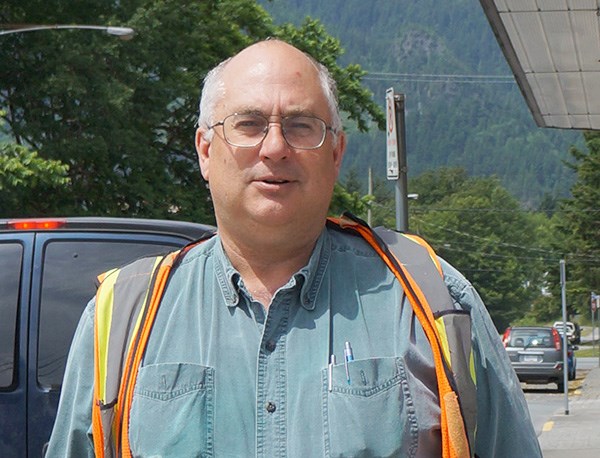Even the newest residents of Squamish likely have a sense that the forest industry is a large part of Squamish’s past, but what does it mean to Squamish today? The Squamish Chief sat down with Jeff Fisher, president and forestry manager of Sqomish Forestry LP, to talk about logging in the district.
Q: What do you think people new to the district don’t know about logging in Squamish?
A: A lot of the new people don’t understand that it is still here and is still a fairly big industry. Even our current council, I think, underestimates its significance. There’s probably 200 people who go to work every day in the logging industry in Squamish still, or are somehow tied into it.
And you look at those logging trucks that come into town, the only time people seem to notice them is when there is some kind of traffic issue, but you have to think, each one of them is worth somewhere between $4,000 and $7,000 of economic activity. Think of how many of those roll into town every day: this time of year, probably a quarter of a million dollars a day in economic activity. Other than schools, hospitals, government, what other industry around here is grinding through that kind of money?
Q: You have been working in the logging industry in Squamish for 20 years. What has changed in the industry in that time?
A: I have seen a lot of change in harvesting, going from a fairly large traditional, they call them, square clear cuts, to now where a lot of cut blocks are four hectares or six hectares and they used to be 40 and 60 hectares, so they are a tenth of the size.
Q: What are the challenges logging is facing in the district?
A: Logging moved away from town for the last 100 years, roughly, but now those trees that were logged 70, 80, 100 years ago are merchantable again and so now we have moved from the hinterland back to town and so we are back into people’s minds. The trees are in front country, you can see them from your house, they are where your bicycle trails and your walking trails and things are. One hundred years ago, everybody who was in town was involved in the business and logging is what they did.
Q: What do you say to those people who are upset their favourite trail is destroyed by logging?
A: We have been working with Squamish Off-Road Cycling Association (SORCA) and in Cat Lake, the Squamish Dirt Bike Association. Generally, we talk to them when we go into an area, we go over the trails that are there and I propose management. Some places we have left buffers on trails, some places we log over it and when we are done it is still a trail, it is just not in the forest, it is in plantation for the next 10 years. Sometimes we have given SORCA a little bit of money to rebuild that trail. I am sure there are individuals who have a stronger attachment to any particular trail, especially someone who built the trail.
We do provide and maintain the logging access [roads] and if you want absolute wilderness and you are able to backpack for weeks you aren’t going to like that, but if you are the average person with kids or want a place to take a car or your camper to pitch your tent and go camping or hunting or go pick mushrooms or drive your motorcycle, then you depend on the forestry roads.
Q: For some people it is hard to square cutting trees out of the forest and being a sustainable or an environmental industry. Can you speak to that?
A: We cut, it does make a bit of a mess, there is no denying that and historically some of the practices around protecting creeks were not very good, but modern forestry, we have rules around buffers and fish streams and things like that. Everything gets reforested. It is sustainable and renewable, we have proven that; we are back harvesting trees where they were originally logged 60 or 70 years ago.
Q: Is there a future for logging in Squamish?
A: I would like to think there would be a future. It would be a little bit less than it has been historically, because since we started cutting, a whole pile of people have moved here. Whistler was at one point a logging camp. Things like that arrive, which means there is less land to grow trees.
I think you should try and compete where you have an advantage. I think if you are building a factory that assembles calculators, we don’t have an edge against anywhere else in the world. In forestry we have a competitive edge in that we have trees and land and people with the skills to cut and process them. We offer good paying jobs. Generally, people are making starting at $20 an hour, most are making $25 to $35 an hour. I don’t think you can buy the average house in Squamish today, making the average wage at the retail worksite.



